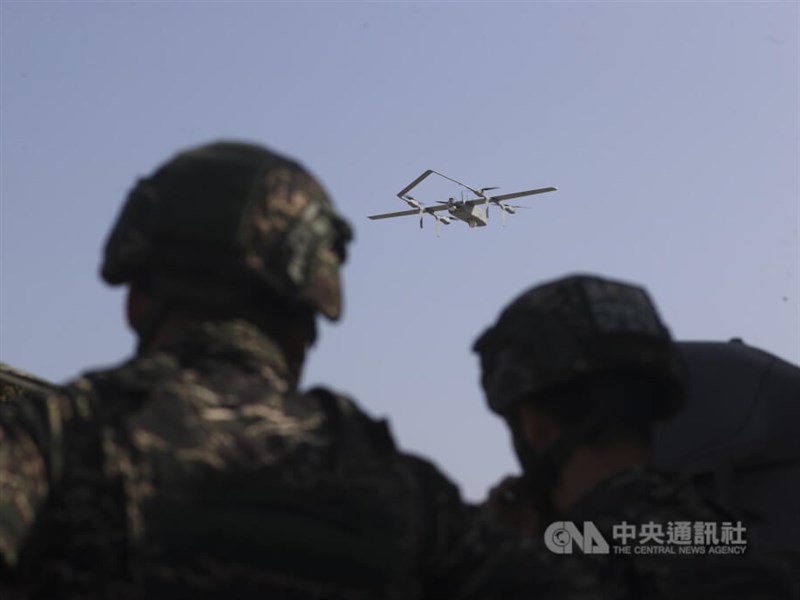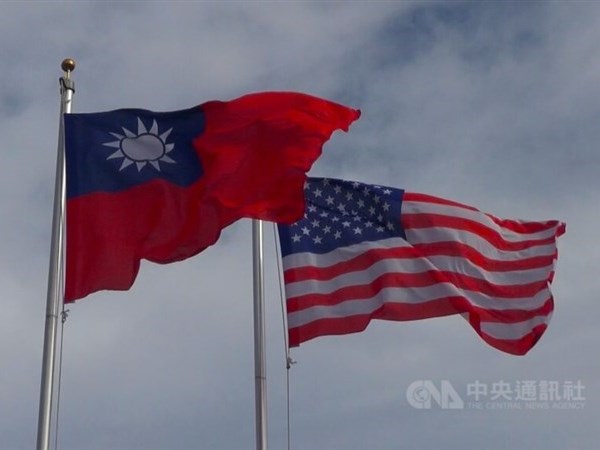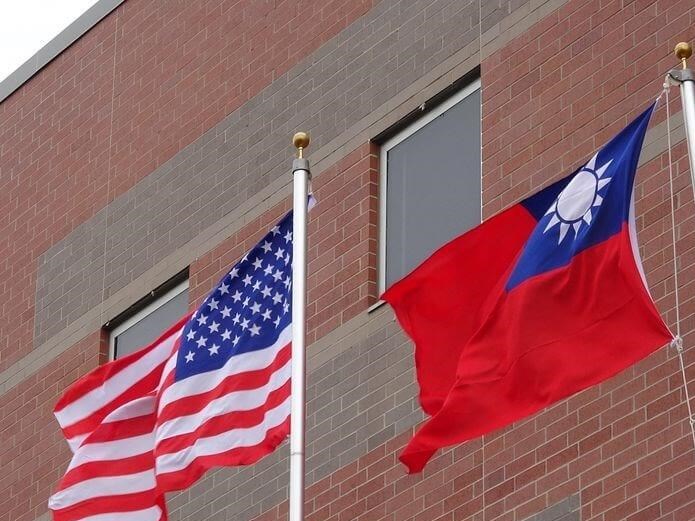DEFENSE / Taiwan must harden defenses; China invasion in 2027 unlikely: U.S. expert
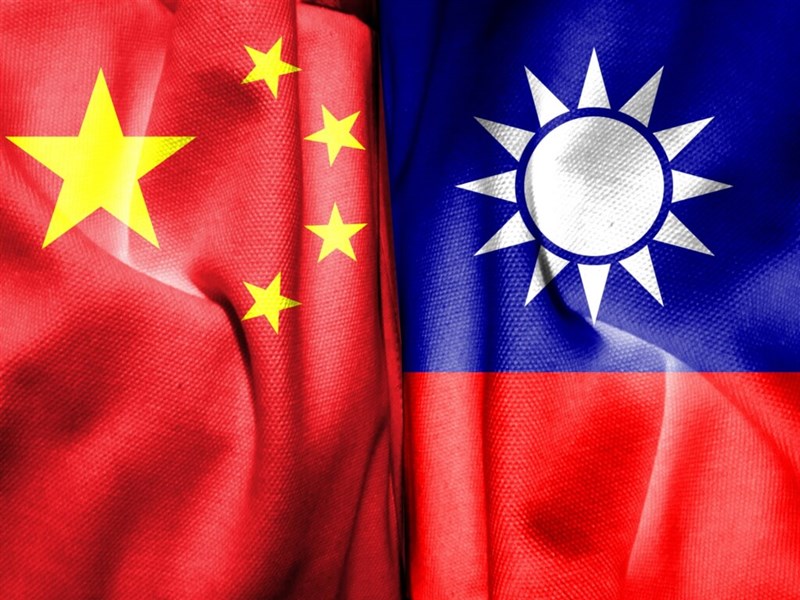
Taipei, Oct. 21 (CNA) Taiwan should strengthen its defenses and improve monitoring of China after the decline under former President Ma Ying-jeou (馬英九), but Beijing is unlikely to launch a full-scale invasion in 2027, a U.S expert on cross-strait ties said in Taipei Tuesday.
"Taiwan has been slow to rebuild its national defense" after spending declined during Ma's tenure, Peter Mattis, president of The Jamestown Foundation, said at a conference on Taiwan-U.S.-China relations held by National Chengchi University's Institute of International Relations.
During Ma's 2008-2016 tenure, a period when relations with China were warmer, his Kuomintang (KMT) administration pledged to keep defense spending at 3 percent of GDP, but "it fell to somewhere around 2.1 at its lowest point," Mattis said at the Mainland Affairs Council-commissioned event.
After Ma's presidency, government data shows that over roughly the past decade of Democratic Progressive Party rule -- covering former President Tsai Ing-wen's (蔡英文) 2016-2024 tenure and incumbent President Lai Ching-te's (賴清德) term to date -- defense spending has remained below 3 percent of GDP.
According to Lai's National Day address on Oct. 10, defense spending will exceed 3 percent next year and is set to reach 5 percent by 2030.
That slowness, Mattis said, has left Taiwan unable to "rebuild and to reconstruct its actual defense in a way that is sufficient and capable of being a deterrent."
The U.S. scholar also said Taiwan has not invested enough in the capacity needed to know "what the Chinese Communist Party (CCP) is armed with," and thus lacks the day-in, day-out monitoring of the People's Liberation Army (PLA).
He argued that such knowledge about the other side of the strait is "important" for leaders of democratic countries because they must "speak to their people and prepare them for the challenges they face."
Suggesting that commercial and open-source data are crucial to such work, Mattis said that beyond Taiwan, countries like the United States and Canada also lack the day-to-day understanding needed of the CCP and its activities.
"Without that knowledge, we will not have the warning we need to defend ourselves, and we will not have the information we need to talk to our peers, our colleagues, our leaders, our people about what the challenges are and what we need to do to respond," he said.
'Davidson Window' and lessons from Ukraine
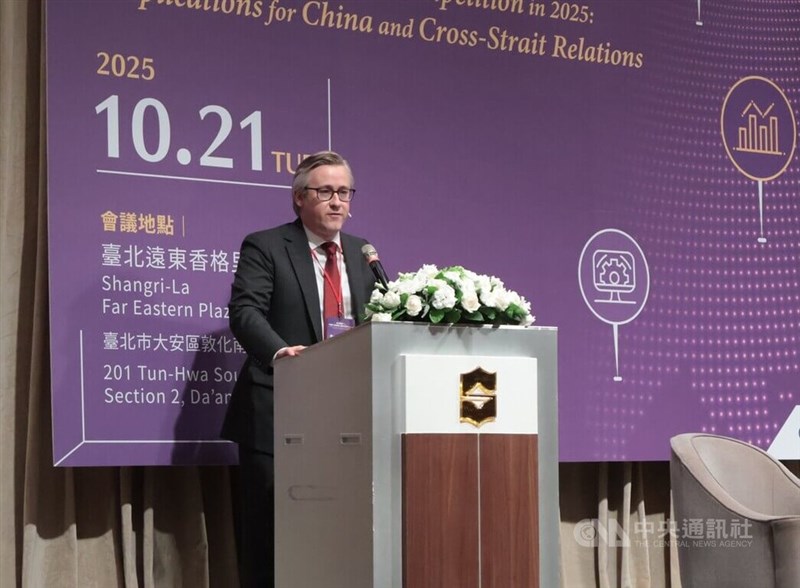
Asked about the "Davidson Window" -- a 2021 remark by then-U.S. Indo-Pacific Commander Adm. Philip Davidson that China's threat could "manifest during this decade, in fact, in the next six years" -- Mattis said it should not be read as an invasion order but as "the next benchmark for the PLA."
Citing Davidson's 2021 testimony at the U.S. Senate Armed Services Committee, Mattis said the remark referred to a CCP Central Military Commission meeting the same year at which Xi Jinping (習近平) directed the PLA to "be ready to fight and win a full-scale invasion of Taiwan by 2027," meaning a capability target rather than "an order, a determination to invade."
In terms of Beijing's main takeaways from the Russia-Ukraine war that could be applied to a Chinese invasion of Taiwan, Mattis said Chinese authorities understand it would be "a war of attrition," with industrial capacity playing "a substantial role" in the outcome.
He added that Beijing also recognizes the importance of electronic warfare and drones, and the need to harden its financial and economic systems to blunt U.S. sanctions and reduce reliance on U.S.-dollar-denominated transactions.
Mattis said that China likely favors decisive moves over slow salami-slicing that allows an opponent to rearm.
"That means you don't invade Crimea and wait years before taking full-scale action, because the Ukrainian army of 2014 versus the Ukrainian army of 2022 is very different," he added.
-
![U.S. think tank calls for 'hellscape' drone strategy for Taiwan]() U.S. think tank calls for 'hellscape' drone strategy for TaiwanA U.S. think tank has urged Taiwan to adopt a "hellscape" strategy that would flood the Taiwan Strait with drones and other uncrewed systems to deter a potential invasion by China.02/27/2026 12:00 PM
U.S. think tank calls for 'hellscape' drone strategy for TaiwanA U.S. think tank has urged Taiwan to adopt a "hellscape" strategy that would flood the Taiwan Strait with drones and other uncrewed systems to deter a potential invasion by China.02/27/2026 12:00 PM -
![New U.S. arms sales strategy favors Taiwan, but ambiguity remains: Experts]() New U.S. arms sales strategy favors Taiwan, but ambiguity remains: ExpertsThe United States' new "America First Arms Transfer Strategy" could benefit Taiwan, though much will depend on how it is implemented and whether Taipei approves sufficient funding, U.S. defense experts said Wednesday.02/12/2026 12:31 PM
New U.S. arms sales strategy favors Taiwan, but ambiguity remains: ExpertsThe United States' new "America First Arms Transfer Strategy" could benefit Taiwan, though much will depend on how it is implemented and whether Taipei approves sufficient funding, U.S. defense experts said Wednesday.02/12/2026 12:31 PM -
![Washington's new arms sales strategy good for Taiwan: U.S. expert]() Washington's new arms sales strategy good for Taiwan: U.S. expertA U.S. defense expert has said that Washington's "America First Arms Transfer Strategy" is good for Taiwan but warned that continued delays in passing defense budgets could put Taiwan's status as a priority partner at risk.02/08/2026 04:09 PM
Washington's new arms sales strategy good for Taiwan: U.S. expertA U.S. defense expert has said that Washington's "America First Arms Transfer Strategy" is good for Taiwan but warned that continued delays in passing defense budgets could put Taiwan's status as a priority partner at risk.02/08/2026 04:09 PM
-
Business
Taiwan's consumer confidence weakens slightly in February
03/03/2026 11:07 AM -
Business
U.S. dollar higher in Taipei trading
03/03/2026 10:42 AM -
Culture
Mandopop singer Sun Yanzi to perform at Taipei Dome in May
03/03/2026 10:22 AM -
Society
Heavy rain advisory in effect for Nantou County
03/03/2026 10:16 AM -
Society
Taiwan headline news
03/03/2026 09:57 AM
